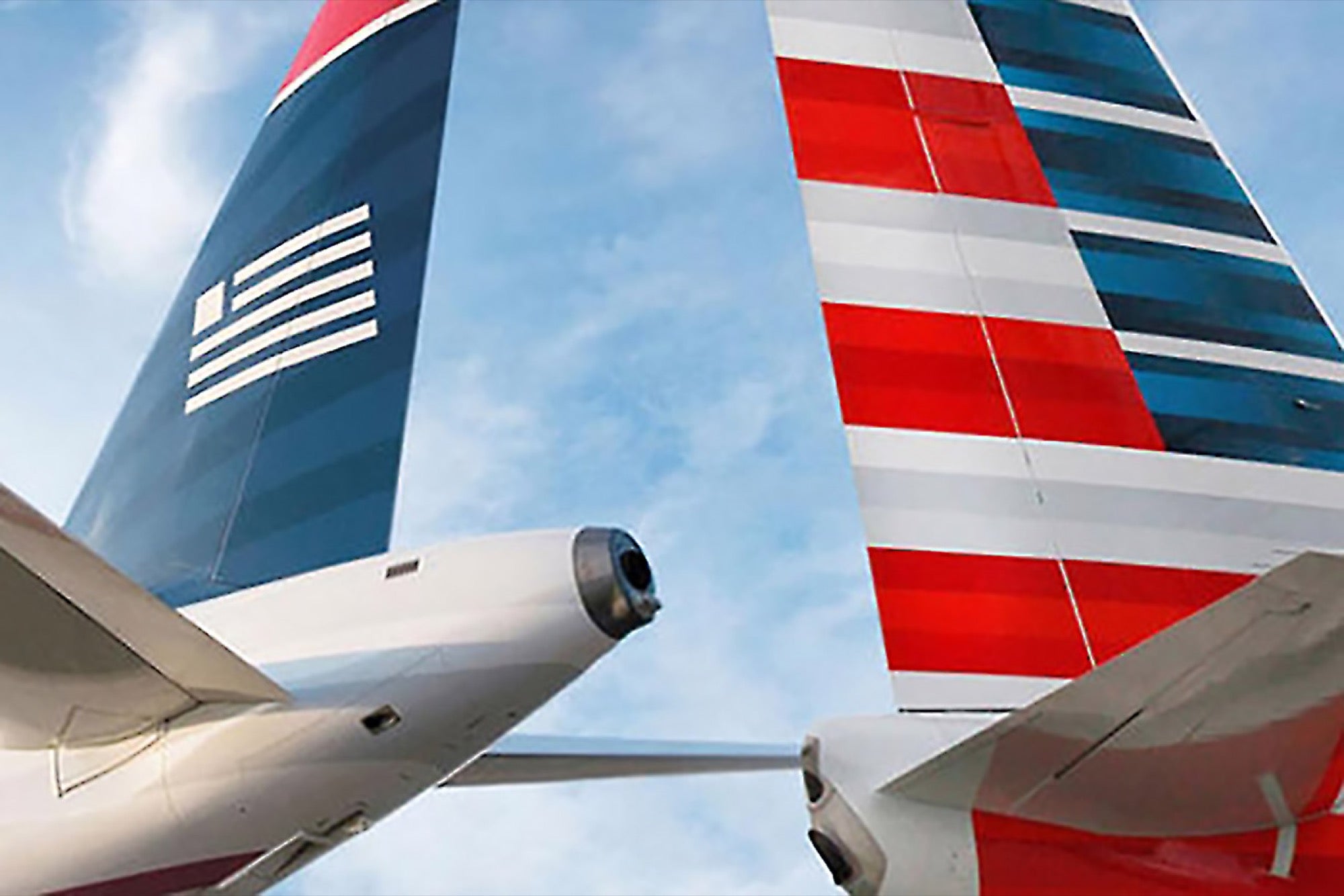The Blocked-For-Now Airline Merger: What Travelers Can Expect A November trial will decide if the merger between American Airlines and US Airways should move forward. Here's how it might affect travelers.
Opinions expressed by Entrepreneur contributors are their own.

Delta merged with Northwest in 2008, United with Continental in 2010, but last month, after American Airlines proposed an additional merger to US Airways, the government intervened, decrying the prospect of another giant carrier creating higher fares, fortress hubs and an anticompetitive industry.
The airlines responded that the deal would allow them to combine operations and reduce costs, generating savings they could pass onto fliers and invest in better service in the air. A November trial announced last Friday will determine if the merger can at last go through.
How does the banned-for-now deal shake out for business fliers? That depends, say analysts, on whether you value price or service.
"The Justice Department anticipated fare increases most notably in the markets out of Washington National where the combined carriers are dominant," says University of Maryland management science professor Michael Ball, co-director of the National Center of Excellence for Aviation Operations Research. "With a blocked merger, that won't happen."
Frequent flier programs were never truly at risk since airlines most value their regulars. With prior mergers those airline miles were transferred.
"One of the unexpected impacts of consolidation is that business travelers have been getting better treatment in the way of inflight WiFi, lie-flat beds, better food and better gates," says Adam Goldstein, chief executive officer of Hipmunk.com, an on-line travel search site, predicting the trend would continue, merger or no merger.
But whether American and US Airways can keep up with Delta and United in the long run is uncertain.
Airline analyst Robert Mann, who formerly bought jets for American Airlines, argues that without the union frequent travelers will suffer in terms of both service and cost as the affected airlines are unable to modernize their fleets.
"Fuel is about 30 percent of operating costs," says Mann, adding that fuel is the major driver in fare prices. "You've got to get that recovered through fares and investment in new technology like new airplanes that are fuel efficient, and you can't do any of that if you're not profitable."
But, of course, just a few weeks ago American reported record profits in July, driven by the peak summer travel season and reduced labor costs, leading some to question the need for American to merge at all, and others to note the perfect alignment of conditions that won't last.
The opportunity cost of not merging is risking the loyalty of frequent fliers who appreciate a national – and international -- footprint.
"Larger carriers have better route structures for redirecting passengers in case of delay or cancellations," says Airfarewatchdog.com founder George Hobica. He foresees both of the betrothed airlines surviving in the short term.
Still, competition in the industry is continuously evolving beyond the legacy carriers, and for every upward fare on the horizon, Hobica notes the recent growth of smaller carriers such as Allegiant, Frontier and Spirit that are operating point to point flights and siphoning off travelers from hub airports to smaller ones.
The merger isn't dead, and its future depends on whether the airlines can have their case heard soon, something the Department of Justice opposes. "The longer it doesn't close, the less likely it is to close," says Robert Mann. "That's what happens when an unstoppable force meets an immovable object."










